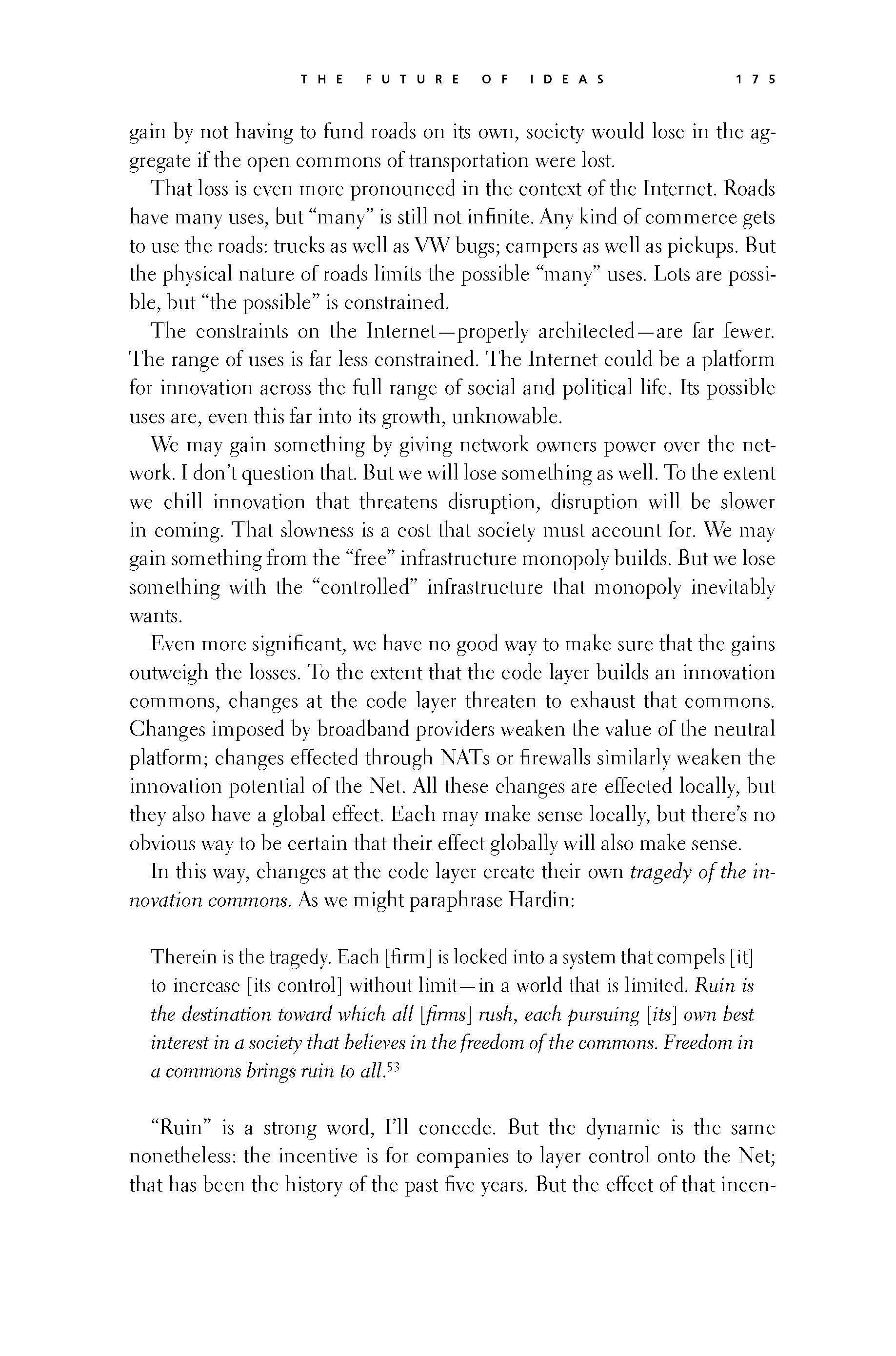 p174 _
-chap- _
toc-1 _
p175w _
toc-2 _
+chap+ _
p176
p174 _
-chap- _
toc-1 _
p175w _
toc-2 _
+chap+ _
p176
gain by not having to fund roads on its own, society would lose in the ag-
gregate if the open commons of transportation were lost.
That loss is even more pronounced in the context of the Internet. Roads
have many uses, but "many" is still not infinite. Any kind of commerce gets
to use the roads: trucks as well as VW bugs; campers as well as pickups. But
the physical nature of roads limits the possible "many" uses. Lots are possi-
ble, but "the possible" is constrained.
The constraints on the Internet -- properly architected -- are far fewer.
The range of uses is far less constrained. The Internet could be a platform
for innovation across the full range of social and political life. Its possible
uses are, even this far into its growth, unknowable.
We may gain something by giving network owners power over the net-
work. I don't question that. But we will lose something as well. To the extent
we chill innovation that threatens disruption, disruption will be slower
in coming. That slowness is a cost that society must account for. We may
gain something from the "free" infrastructure monopoly builds. But we lose
something with the "controlled" infrastructure that monopoly inevitably
wants.
Even more significant, we have no good way to make sure that the gains
outweigh the losses. To the extent that the code layer builds an innovation
commons, changes at the code layer threaten to exhaust that commons.
Changes imposed by broadband providers weaken the value of the neutral
platform; changes effected through NATs or firewalls similarly weaken the
innovation potential of the Net. All these changes are effected locally, but
they also have a global effect. Each may make sense locally, but there's no
obvious way to be certain that their effect globally will also make sense.
In this way, changes at the code layer create their own _tragedy_of_the_in-_
_novation_commons._ As we might paraphrase Hardin:
____ Therein is the tragedy. Each [firm] is locked into a system that compels [it]
____ to increase [its control] without limit -- in a world that is limited. _Ruin_is_
____ _the_destination_toward_which_all_[ _firms_] _rush,_each_pursuing_[_its_] _own_best_
____ _interest_in_a_society_that_believes_in_the_freedom_of_the_commons._Freedom_in_
____ _a_commons_brings_ruin_to_all_.[10-53]
"Ruin" is a strong word, I'll concede. But the dynamic is the same
nonetheless: the incentive is for companies to layer control onto the Net;
that has been the history of the past five years. But the effect of that incen-
[[175]]
p174 _
-chap- _
toc-1 _
p175w _
toc-2 _
+chap+ _
p176